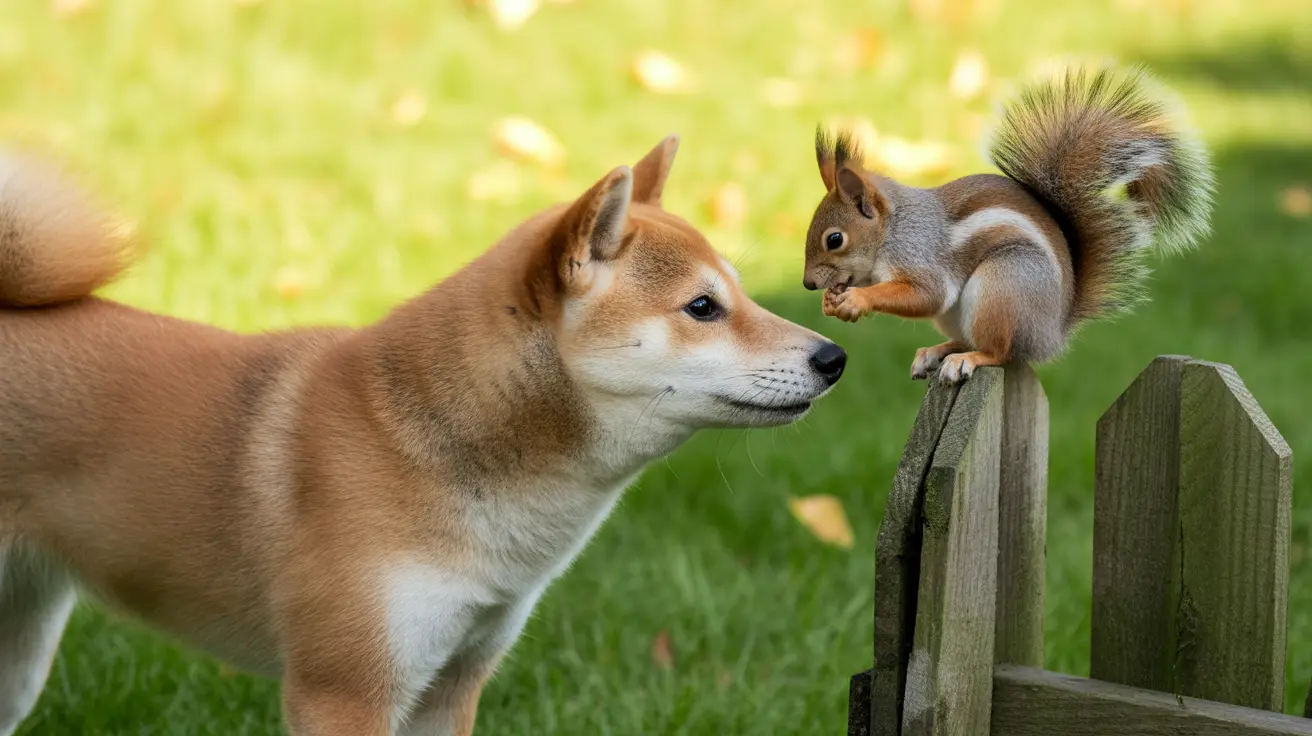Finding out your dog ate a squirrel can be alarming for any pet owner. Whether your dog caught a live squirrel or found a deceased one, it's important to understand the potential risks and know exactly what steps to take. This comprehensive guide will walk you through the necessary actions, potential health concerns, and when to seek veterinary care.
While dogs naturally have predatory instincts that may lead them to chase and catch squirrels, consuming these animals can expose them to various health risks. Let's explore what you need to know to keep your pet safe and healthy after such an incident.
Immediate Steps to Take After Your Dog Eats a Squirrel
If you've witnessed or suspect your dog has eaten a squirrel, remain calm and follow these essential steps:
- Prevent your dog from eating more of the squirrel or other wildlife
- Check your dog's mouth and body for any wounds or scratches
- Note the time and circumstances of the incident
- Monitor your dog closely for any immediate signs of distress
- Contact your veterinarian for professional guidance
Understanding the Health Risks
Bacterial and Viral Infections
Squirrels can carry various pathogens that may affect your dog's health, including:
- Salmonella
- Leptospirosis
- Tularemia
- Botulism (particularly if the squirrel was already dead)
Parasitic Concerns
Consuming squirrels can expose your dog to both internal and external parasites:
- Roundworms and tapeworms
- Fleas and ticks
- Coccidia
- Giardia
Signs of Illness to Watch For
Monitor your dog closely for these symptoms in the hours and days following the incident:
- Vomiting or diarrhea
- Lethargy or weakness
- Loss of appetite
- Abdominal pain or bloating
- Fever
- Unusual behavior or neurological symptoms
When to Seek Emergency Veterinary Care
Seek immediate veterinary attention if your dog shows any of these serious symptoms:
- Severe vomiting or diarrhea
- Difficulty breathing
- Signs of choking
- Extreme lethargy
- Seizures or tremors
- Bleeding from any orifice
- Severe abdominal pain
Prevention and Future Safety
To prevent future incidents, consider implementing these protective measures:
- Keep your dog on a leash during walks
- Supervise outdoor time in your yard
- Install physical barriers where squirrels are common
- Train your dog with strong recall commands
- Remove potential attractants that might draw squirrels to your yard
Frequently Asked Questions
What should I do immediately if my dog ate a squirrel, and should I try to make them vomit?
Do not attempt to make your dog vomit unless specifically instructed by a veterinarian. Instead, monitor your pet closely and contact your vet for guidance. Inducing vomiting could cause additional complications or aspiration.
What signs of illness or poisoning should I watch for after my dog eats a dead or live squirrel?
Watch for vomiting, diarrhea, lethargy, loss of appetite, abdominal pain, fever, or unusual behavior. If the squirrel was poisoned, signs might include bleeding, bruising, or neurological symptoms. Contact your vet immediately if you notice any concerning symptoms.
Can my dog get diseases or parasites from eating squirrels, and how can I prevent them?
Yes, dogs can contract various diseases and parasites from eating squirrels, including salmonella, leptospirosis, and internal parasites. Maintain regular parasite prevention treatments and keep your dog's vaccinations current to minimize risks.
Is there a risk of rodenticide poisoning if my dog ate a squirrel, and how can I detect it early?
Yes, there's a risk of secondary poisoning if the squirrel consumed rodenticide before your dog ate it. Early signs include lethargy, pale gums, difficulty breathing, or bleeding. Prompt veterinary care is essential if you suspect poisoning.
How can I stop my dog from chasing or eating squirrels when outside to keep them safe?
Use positive reinforcement training to improve recall commands, keep your dog on a leash during walks, and supervise outdoor time. Consider working with a professional trainer to address prey drive behaviors if needed.
Conclusion
While a dog eating a squirrel can be concerning, staying calm and taking appropriate action is key. Monitor your pet closely, know the warning signs, and don't hesitate to seek veterinary care if you have concerns. With proper prevention and training, you can help minimize the risk of future incidents and keep your dog safe.






